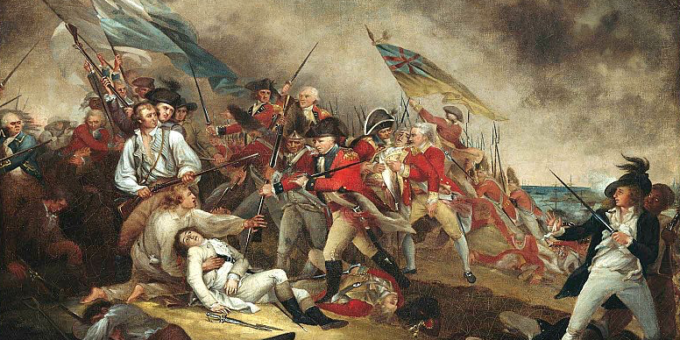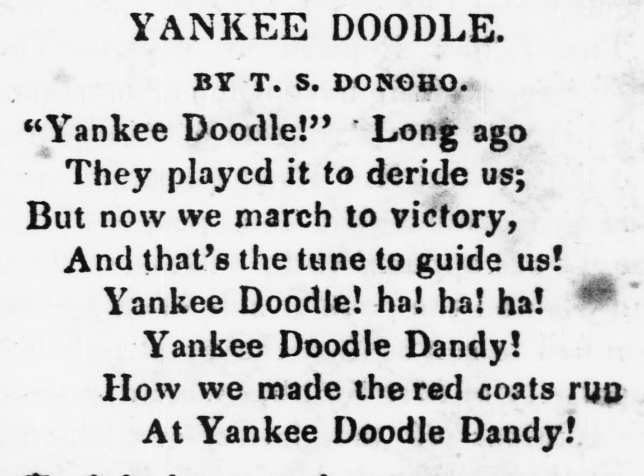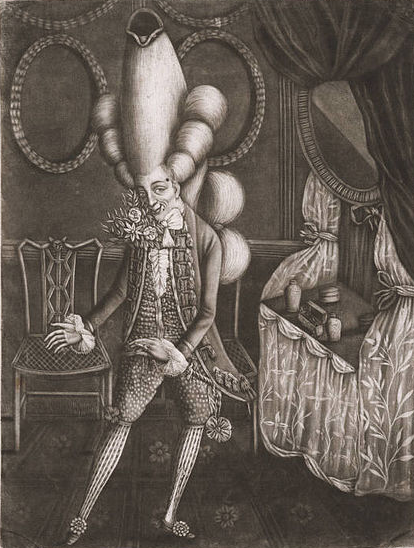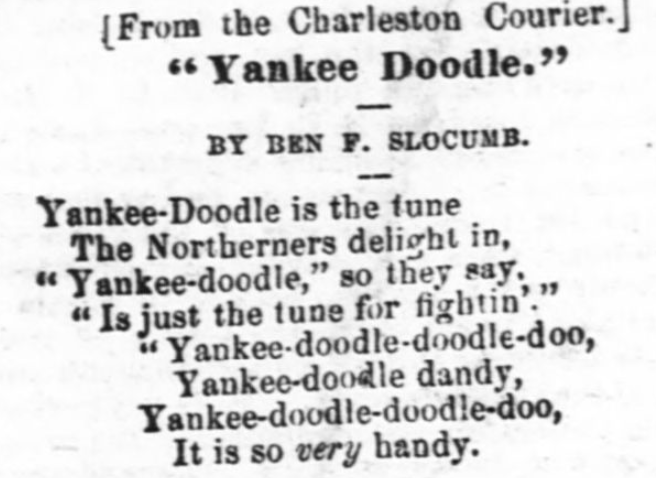
When I first sat down to research the origin of the Yankee Doodle song, I thought that it was going to be a quick, one-hour project. Instead, several hours into the research and I am no more certain as to the song’s origin than as I was when I woke up this morning.
With absolute certainty, I can say that the tune for Yankee Doodle has been with us since antiquity. We can find it in the old nursery rhymes, such as:
Lucy Locket lost her pocket,
Kitty Fisher found it;
Not a bit of money in it,
Only binding round it.
There are innumerable songs written to this simple, but catchy tune.
However, when it came to the phrase “Yankee Doodle,” I ran into all sorts of trouble.
There are many different lyrics for the Yankee Doodle song, but what does it all mean?
According to common beliefs, some of the original verses of Yankee Doodle were sung by the British to make fun of the colonials who fought beside the British during the French and Indian War.

Some historians have speculated that there are two possible origins for the word Yankee. The first is that it comes from the Native American pronunciation of the word English, “Yengees.” Another possibility is that the word comes from a rude jingle about Oliver Cromwell.
Doodle means fool or simpleton in old English, which would mean that a Yankee Doodle was an English fool.
A dandy was a middle class person who dressed fancy in order to impersonate the aristocrats.
As for that macaroni, it was a reference to the excessive fashion of the dandy English youth during the 1700s. The fancy feather in the hat was meant to represent the frivolous fashion even though the colonial militia men did not have the money for such outrageous things. In fact, an early American would have been more apt to pick a feather up from off the ground, stick it in his cap, and call himself a dandy just to make fun of the English.

During America’s Revolutionary War, the British would sing their version of the Yankee Doodle song to taunt the American militia men as being a bedraggled group of men. Although it has also been suggested that the lyrics were meant to call the American soldiers gay.
This backfired on the British simply because of the humor of these early Americans. After the Battle of Bunker Hill, the British had the lyrics sung back to them by the Americans as an act of defiance and to show the British that these new Americans were not about to succumb to silly bullying.
One English officer, Thomas Aubrey, wrote:
“ ‘Yankee Doodle’ is now their paean, a favorite of favorites, played in their army, esteemed as warlike as the ‘Grenadiers’ march — it is the lover’s spell, the nurse’s lullaby. It was not a little mortifying to hear them play this tune, when their army marched down to our surrender.”
Further research into the Yankee Doddle song shows that it may have originated as a Dutch harvest song.
Made of mostly nonsense words, it goes like this:
Yankee, didel, doodle down,
Diddle, dudel, lanther,
Yanke viver, voover vown,
Botermilk and tanther.
Whatever the origin of the Yankee Doodle song, in the United States, it was used to mock one’s opponent and to express pride.

During America’s Civil War, the Yankee Doodle song was dusted off and given new lyrics. Both the North and the South used the tune and the Yankee Doodle moniker to point out the enemy’s weaknesses.

